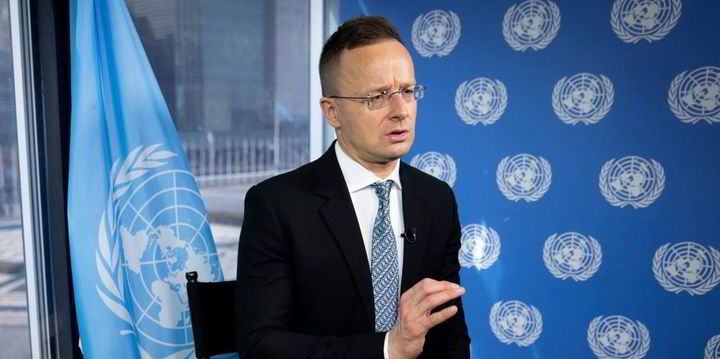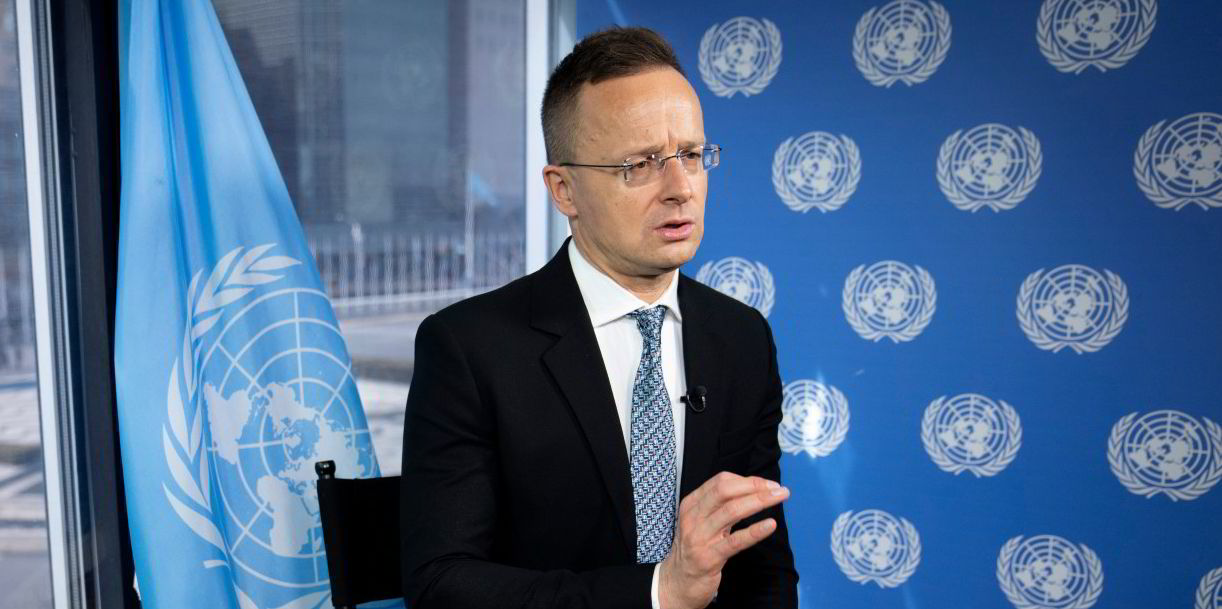Hungary and the Czech Republic moved in opposing directions on the issue of future Russian energy supplies this week, with divergent pipeline projects aimed bringing more oil and gas to domestic customers.
Hungary’s state controlled oil and gas producer and importer MOL and Serbia’s pipeline operator Transnafta agreed this week on terms for building a 128 kilometre connector to link their respective oil trunk pipeline networks, according to Hungarian Foreign Minister Peter Szijjarto.
The connector will permit Serbia to import Russian oil that arrives to Hungary via the Druzhba trunkline running from Russia across Ukraine.
In February when the plan was made public, Serbian Minister of Mining and Energy Dubravka Dedovic was quoted as saying by local news portal Serbian Monitor that “the implementation of this project would ensure the diversification of oil supply and increase the security of supply to the Pancevo oil refinery”.
Dedovic’s ministry said pledged that oil transportation from Hungary to Serbia would be reduced compared to the transportation of oil from a marine import terminal in Omisalj in Croatia.
Construction costs of the connector were estimated at about €100 million,
Article continues below the advert
Szijjarto said at a press conference in Belgrade earlier this week that the binding agreement on the Druzhba connector will be signed on 20 June at the sidelines of a planned meeting between the governments of the two countries.
Last year, the European Union granted Budapest a derogation from a European embargo on imports of Russian oil after the country repeatedly argued it has few options of arranging alternative oil supplies from other sources.
Hungary, under Prime Minister Viktor Oban has stood out among EU member states for maintaining warm relations with Moscow, even after the invasion of Ukraine.
Apart from taking Russian supplies via Ukraine, Hungary intends to capitalise on the supply of Russian natural gas that arrives via the TurkStream gas pipeline that suppliers Russian gas under the Black Sea to Turkey, Bulgaria and Serbia.
Such gas deliveries avoid the risks of being shipped via the traditional transit route in Ukraine where gas pipelines have repeatedly become the focus of Russian missiles strikes and shelling.
Szijjarto said that Hungarian state owned gas importer MVM and Serbia’s gas player Serbiagas are establishing a joint regional natural gas trading venture.
Last year, MVM contracted with Gazprom for the annual Russian gas supply of at least 4.5 billion cubic metres.
Szijjarto also reiterated his country’s readiness to open its underground storage facilities for Serbia, with spare capacity for to 100 million cubic metres of gas in Hungary ahead of the next winter heating season.
Westward gaze
Like Hungary, the Czech Republic won a European derogation to continue Russian oil imports via Druzhba.
However, Prague expects alternative oil supplies via the Transalpine Pipeline (TAL) to become available to the country in 2024, and thus reduce the country’s dependence on Russian oil pipeline deliveries via Druzhba.
The 750-kilometre TAL pipeline, commissioned in 1967, links Italy, Austria and Germany. It has a connector, known as Ingolstadt – Kralupy – Litvinov that starts at the town of Vohburg in Bavaria and delivers oil from TAL to the Czech Republic via its western borders.
In July last year, Bavarian state officials in Germany gave necessary clearance for works to start to raise the daily throughput capacity for a pipeline to the Czech Republic running through its territory.
Czech Prime Minister Petr Fiala said in his Twitter post, “Stepping up the TAL oil pipeline was an important step in our cooperation in resolving the energy crisis caused by the Russian invasion of Ukraine. This project is important for strengthening the energy security not only of the Czech Republic, but also of Germany and Austria”.

